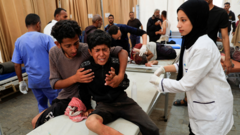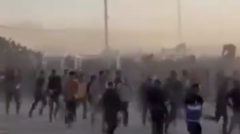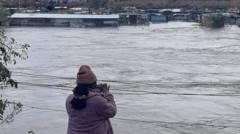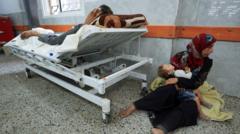Fighting in Myanmar continues unabated even after a temporary ceasefire was declared to facilitate earthquake relief efforts, raising concerns about civilian access to aid.
Myanmar Conflict Escalates Despite Earthquake Ceasefires
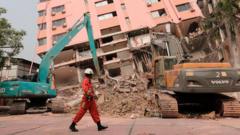
Myanmar Conflict Escalates Despite Earthquake Ceasefires
Ongoing military clashes jeopardize humanitarian aid efforts post-earthquake in Myanmar.
Fighting in Myanmar persists despite both the military junta and an alliance of rebel groups announcing temporary ceasefires intended to support earthquake relief operations. Since the ceasefire was declared, the military has conducted at least 14 attacks, raising alarms among humanitarian organizations. Reports from the UN Human Rights office indicate that while one rebel group accused the military of provoking violence, the junta maintains that it will retaliate against attacks on its bases.
UN High Commissioner for Human Rights, Volker Türk, urged an immediate halt to military operations, emphasizing the need to assist those affected by the April 28 earthquake, which registered a magnitude of 7.7. The earthquake has led to an official death toll of 3,564, with over 5,000 individuals injured and around 210 reported missing.
In the quake's aftermath, Mandalay has seen recovery operations hampered by adverse weather conditions, as aid groups report that rain could complicate relief efforts. The UN has acknowledged that while some humanitarian work has progressed, extensive limitations imposed by the military restrict access to many areas in critical need.
UN humanitarian chief Tom Fletcher expressed concern for the residents in Mandalay, pointing out their dire lack of food, water, and shelter. With almost 20 million people already in need of assistance before the earthquake, the natural disaster has exacerbated an already tenuous situation for many communities across Myanmar.
As the region endures aftershocks, locals are grappling with trauma as they navigate a complex crisis combining conflict, a devastating earthquake, and widespread human needs. The ongoing strife complicates the response to those displaced by the earthquake, leading to fears that existing humanitarian aid may be weaponized in the ongoing conflict.




